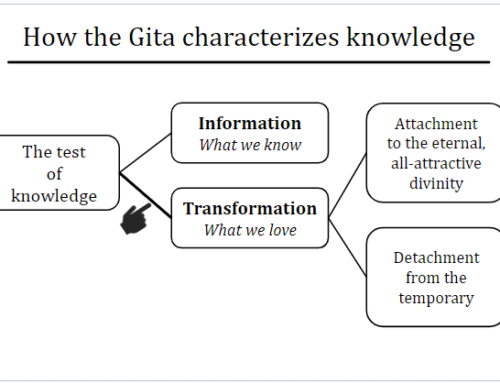We all sometimes become frustrated when we are forced into downtime because the Internet or the power go off or because a pandemic forces us to stay at home where we may not be able to do many of the things that we like to do.
At such times, instead of resenting the inability to go outward, either physically or digitally, we can focus on taking this opportunity to go in. That means we calm ourselves by taking a few deep breaths and seek better self-understanding, through introspection, meditation, purification and devotion. We can sharpen our focus by removing the clutter from our consciousness and by giving us clarity about what things are most important for us.
During our in-time, we can look inward to see what emotions and reactions are most prominent within us. And then we can look inward further to see what aspirations and values are most important for us. And by understanding the difference between the two and by aligning our responses more with our values and aspirations rather than with our impulses, we can become more effective in all walks of our life.
Indeed, the Bhagavad-gita (13.11) says that those who are in knowledge seek seclusion and some amount of distancing from the ways of worldly people, because they know that such distancing is invaluable and even indispensable for gaining perspective. If we are too caught in the moment, then we can’t pursue the overall flow from moment to moment. If instead we go inward, we can transform our subsequent uptime into a time for not just world determined-business, doing whatever the world or on the mind demands from us, but in doing activities that help us fulfill our potentials and become the best that we can be.
One-sentence summary:
Our spirituality can empower us to transform down-time into in-time.
Think it over:
- What does going inward mean?
- Why do knowledgeable people seek seclusion from the world?
- How can using downtime positively help us use subsequent up-time better?


Leave A Comment